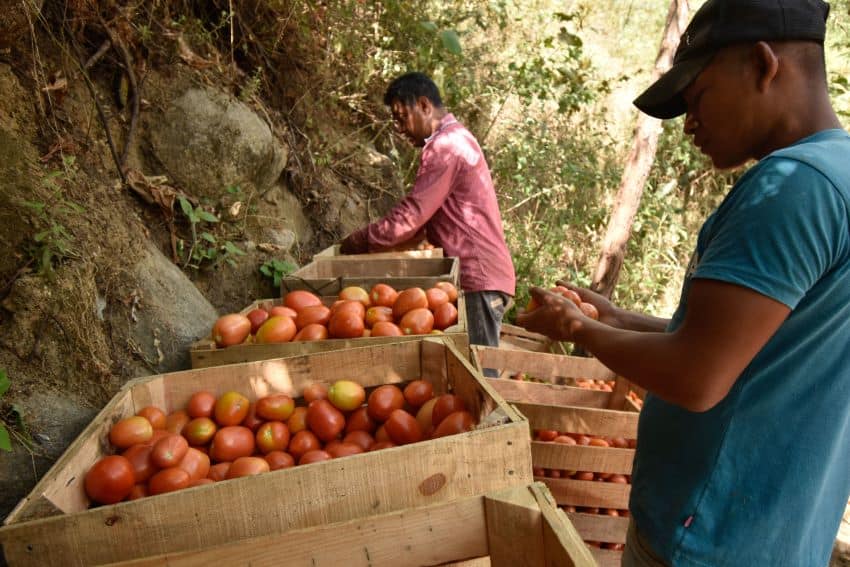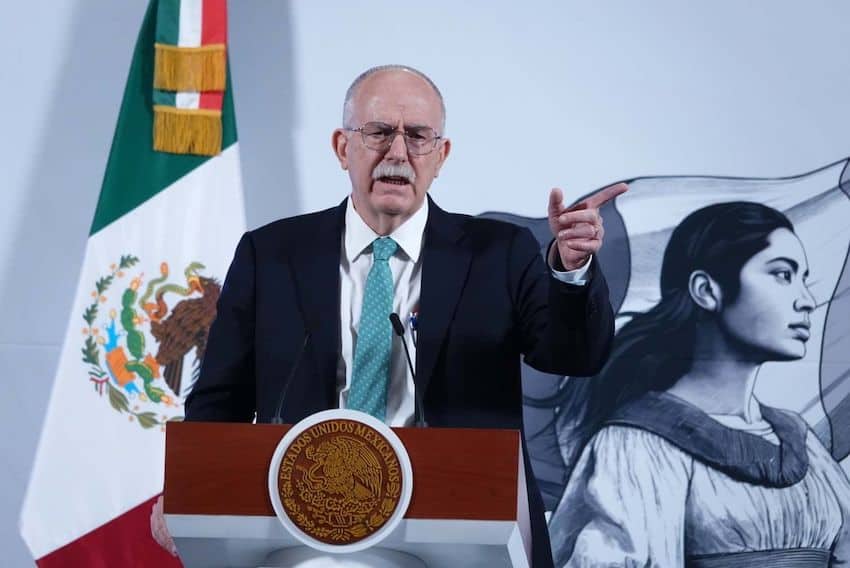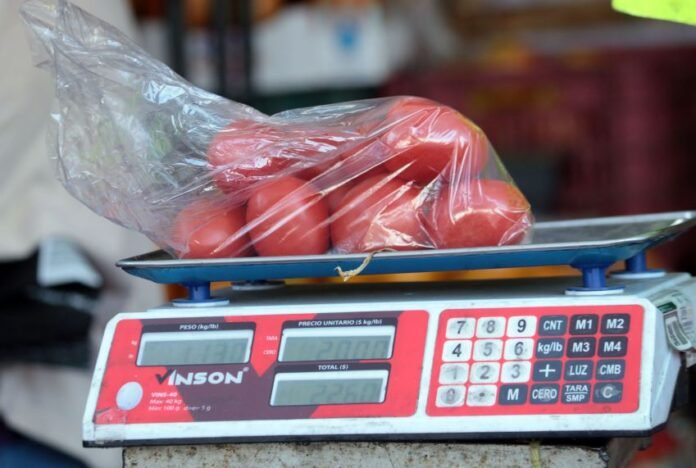The United States government said Monday that it would impose duties of almost 21% on imports of most tomatoes from Mexico starting in July, but the Mexican government is confident it can reach a deal to avert or suspend the imposition of the tax.
The U.S. Department of Commerce (Commerce) announced on Monday its intention to “withdraw from the 2019 Agreement Suspending the Antidumping Investigation on Fresh Tomatoes from Mexico.”

In a press release, the department said the termination of the agreement would be “effective in 90 days.”
“The current agreement has failed to protect U.S. tomato growers from unfairly priced Mexican imports, as Commerce has been flooded with comments from them urging its termination. This action will allow U.S. tomato growers to compete fairly in the marketplace,” it said.
“With the termination of this agreement, Commerce will institute an antidumping duty order on July 14, 2025, resulting in duties of 20.91% on most imports of tomatoes from Mexico,” the department said.
“The strict enforcement of U.S. trade law is a primary focus of the Trump Administration,” the statement said.
In 2019, during Donald Trump’s first term as U.S. president, the United States withdrew from a six-year-old agreement on tomatoes that resulted in the imposition of a 17.5% tariff on imports from Mexico in May of that year.
Then U.S. Secretary of Commerce Wilbur Ross said at the time that the withdrawal decision followed complaints from United States tomato producers, including the Florida Tomato Exchange, that they were being undercut by Mexican imports.
In August 2019, Mexican tomato producers and the United States government reached a new agreement that resulted in the suspension of an antidumping investigation in the U.S. and the lifting of the 17.5% duties. The United States now intends to terminate that agreement.
Ag minister: Salads and ketchup will be more expensive in US if tomato duties are imposed
Mexican Agriculture Minister Julio Berdegué responded to the United States announcement at President Claudia Sheinbaum’s Tuesday morning press conference.

He highlighted that tomato producers in the United States have long accused Mexican producers — “in our opinion without reason” — of selling tomatoes in the U.S. at a below-cost price, “which is not true.”
“They’ve been telling this story for decades,” Berdegué said.
He told reporters that five agreements suspending antidumping investigations in the U.S. have been reached since 1996.
“It’s important to say that 90% of the tomatoes that the United States imports … are Mexican tomatoes,” Berdegué said, adding that “six of ten tomatoes they eat” are grown in Mexico.
The “consequence” of the almost 21% duties, if they are imposed, will be more expensive tomatoes in the United States, the agriculture minister said.
“Their salads, their ketchup, everything [with tomato in it] will be more expensive,” he said.
“They can’t replace us because it’s not as if there are a lot of other countries that produce this quantity of excellent tomatoes at a very good price,” Berdegué said.
“If they want to [impose the duties], they’ll simply pay 21% more for their tomatoes,” he said.
Will history repeat itself?
Berdegué highlighted that that there are 90 days until the duties are scheduled to take effect, and said that Mexico will engage in negotiations with the United States in the meantime.
“They already did it in 2019, the same as now, very similar,” he said, referring to the United States announcement more than six years ago that it was withdrawing from a 2013 bilateral tomato agreement.
US pulls out of Mexico tomato agreement over growers’ complaints
Berdegué noted that negotiations followed, “Mexico defended itself” and an agreement “that is valid until now” was reached.
“What’s probably going to happen now is exactly the same thing. We’re going to start to talk … and we’re going to see how it turns out,” he said.
Mexico’s preference, of course, would be to reach a deal with the United States before the duties take effect rather than after, as occurred in 2019.
Berdegué noted that the United States’ proposed duties on Mexican tomatoes are completely separate from Trump’s so-called “reciprocal tariffs.”
He also said that it is “very important” to highlight that antidumping investigations are “common.”
“Mexico has two active investigations, not from now, not from yesterday, but from a long time ago,” Berdegué said, noting that one focuses on imports of chicken from the United States and the other examines imports of pork legs from the U.S.
He noted that Mexico has not imposed any tariffs on those imported products.
In closing remarks, Berdegué reiterated that Mexico will hold talks with the United States over the next 90 days, during which it will seek the renewal of the 2019 agreement the U.S. intends to terminate.
“There are hundreds of thousands of people who work in the production of tomatoes in Mexico. We have to take care of them,” he said.
Berdegué also said that Mexican tomatoes “are very healthy” and “hopefully” they won’t become more expensive for U.S. consumers.
Since Trump took office in January, the United States has imposed tariffs on Mexican steel and aluminum and hundreds of products made with those metals as well as vehicles made in Mexico and Mexican goods not covered by the USMCA free trade pact.
Almost all of Mexico’s tomato exports go to the US
- Mexico produces around 3.6 million tonnes of tomatoes per year and 56% of total production is exported, according to Mexican Economy Ministry (SE) data reported by the Milenio newspaper.
- Citing SE data, Milenio reported that 99.8% of Mexico’s tomato exports go to the United States.
- Mexico’s exports of fresh and chilled tomatoes generated revenue of US $2.56 billion in 2023, according to SE data.
- Sinaloa is easily Mexico’s largest tomato-producing and exporting state. Tomatoes grown in the northern state brought in export revenue of $1.06 billion in 2023, or more than 40% of Mexico’s total tomato export earnings that year.
- After Sinaloa, the next biggest tomato-exporting states in 2023 were Jalisco, Sonora, Guanajuato and Puebla.
Mexico News Daily
